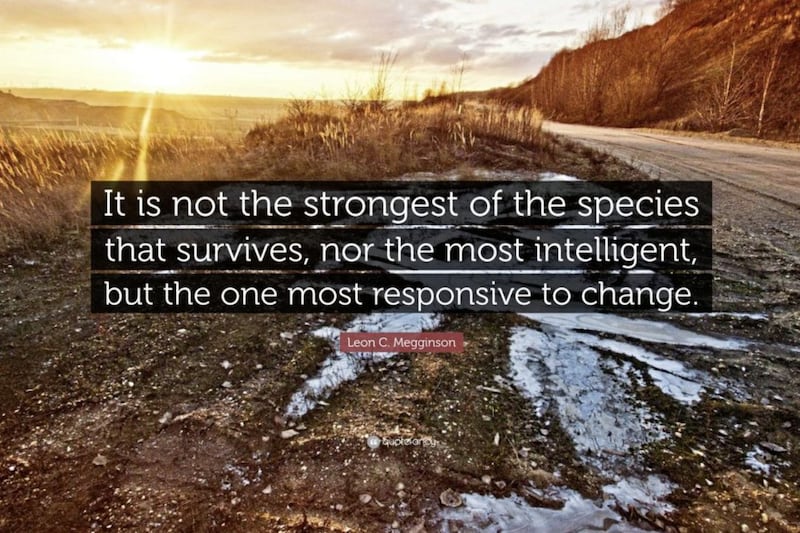SO there are these five monkeys in a cage. There is also a ladder which leads up to a bunch of bananas suspended from the ceiling. One of the monkeys, as you would expect, makes a move for those bananas. He gets a few rungs up the ladder when a blast of icy water sprays him and the rest of the monkeys below. They aren’t happy.
A second one tries and another blast of water hits them. Eventually it gets to the stage where whenever any of the monkeys try to set foot on the ladder the others drag him off and administer a beating; just to avoid being drenched. At this point one of the original monkeys is replaced. He doesn’t know about the water so he makes for the ladder. As soon as he sets a foot on it the others drag him off and beat him. A second switch happens and the same sequence occurs: the new addition tries to climb the ladder and the rest, including the previous newcomer, pull him down and beat him. Switches keep on happening, with the same results until all the original monkeys have been replaced.
Now you have five monkeys in a cage, ready to beat up any new monkey that makes for the ladder, however none of them actually know why as they have never been blasted by the water. They all just think that’s the way things are done round here.
Now imagine those monkeys (I’m giving them the power of speech; it’s my story) are sitting there thinking to themselves: why? But they don’t want to seem stupid and ask, because all the others seem to know what they are doing.
Have we ever been in this situation? Have we ever been afraid to ask what we think is a dumb question because everyone else seems to know what they are doing? Of course we have. We don’t want to embarrass ourselves. We don’t want others to think we are incapable. So we don’t ask. It’s crazy. Sometimes we’d rather plough ahead, knowing we are probably going to make a mistake or do something wrong further down the line rather than risk a little embarrassment early doors.
First up questions bring clarity; they set a bar for understanding, so that everyone involved in the conversation has a baseline. They ensure we all start on a level playing field. They also get us involved and invested. You got the courage up to ask, now you want to hear the answer and how it all fits together.
They also can set others at ease. Maybe you have a bunch of folks all too nervous to speak up and your basic query liberates them from that. They hear you ask something simple and they suddenly feel OK to speak, to probe and to question.
Asking can also make those giving the answer feel valued and important, it gives them an opportunity to teach and to feel they have helped you in some way. It shows you are interested and you are actually listening to them. It also presents you as someone coachable, someone not afraid to take instruction and to learn from others. In turn this can create a relationship where they may well feel comfortable seeking out information from you on some other topic as you don’t give off a ‘superior’ vibe or seem like a know it all.
So whenever you feel like you don’t understand something, but are too embarrassed to ask: get over yourself! Root cause analysis is founded in asking ‘why’ at each stage until you arrive at the nub of the issue and the biggest exponent of that is my four-year-old nephew. He doesn’t stop asking ‘why’ until he’s completely satisfied he has understood and lemme tell you: he’s a clever boy.
As Cark Sagan once wrote: "There are naive questions, tedious questions, ill-phrased questions, questions put after inadequate self-criticism. But every question is a cry to understand the world. There is no such thing as a dumb question".
:: Barry Shannon (bshannon@cayan.com) is HR director at Cayan in Belfast








